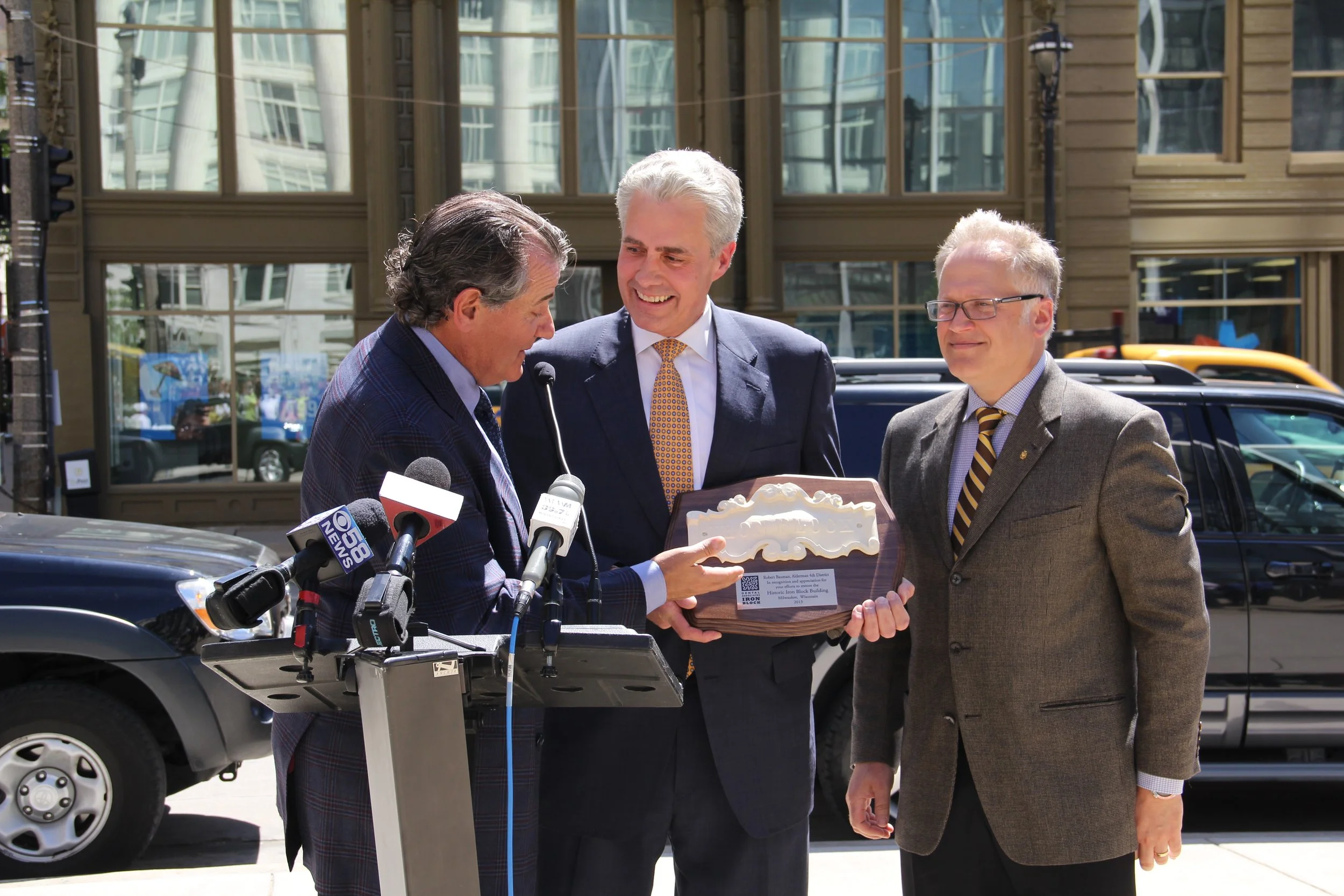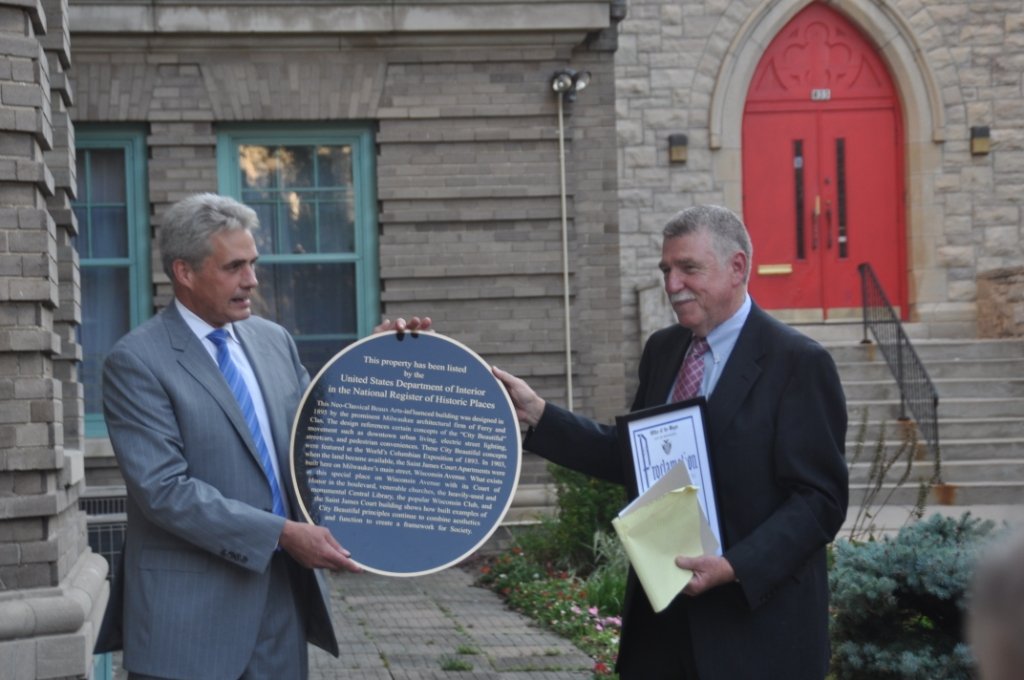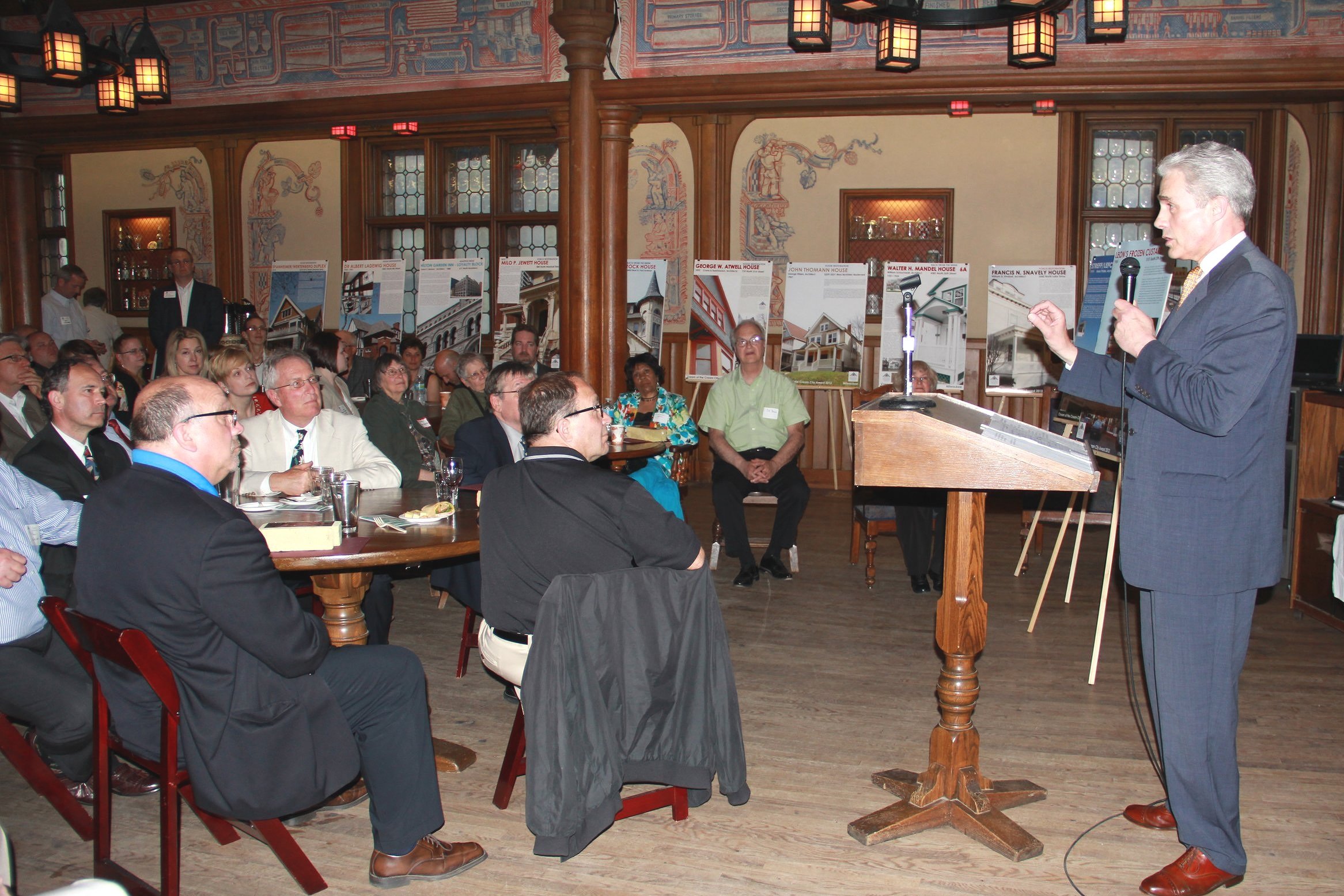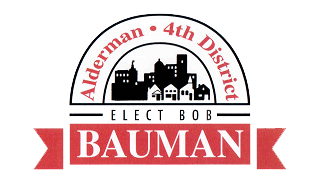Record on Housing

Historic Iron Block Restoration Ribbon Cutting Ceremony @ Wisconsin & Water

Historic Home Renovated Using Housing Infrastructure Funds @ 34th and St Paul

Historic Third Ward Revitalization

Dedication of Renovated Historic Property at 9th and Wisconsin

Kilbourn Lofts Ribbon Cutting

Cream of the Cream City Historic Awards Ceremony
Alderman Bauman has been a Leading Advocate for Neighborhood Revitalization and the Creation of Affordable Housing.
Throughout his 20 year career on the Common Council, Alderman Bauman has focused on creating programs and legislation aimed at neighborhood revitalization, home ownership and creating affordable housing. Alderman Bauman has long believed that home ownership, especially home ownership by low income families and first time home buyers, is critical to neighborhood revitalization, community stability and wealth creation.
In September, 2008, Alderman Bauman authored the legislation creating the Joint Committee on the Redevelopment of Abandoned and Foreclosed Homes (file # 080644). This committee, chaired by Alderman Bauman, has overseen the creation and administration of the city’s programs aimed at neighborhood revitalization, creating affordable housing and promoting home ownership. This committee is comprised of members of the Common Council and representatives from the departments of City Development, Neighborhood Services, Block Grant Administration, the Mayor’s office and the Housing Authority. This committee has met regularly over the last 15 years to provide guidance and to review outcomes of the city’s housing programs. Between 2009 and 2013, this committee oversaw the expenditure of over $70m in federal funds through the Neighborhood Stabilization Program which had a significant impact on mitigating the adverse effects of the Great Recession. Since that time, the joint committee has overseen the expenditure of city resources on housing revitalization programs under the city funded Strong Neighborhood Investment Plan until 2021 when the city was allocated $394m of federal funds under the American Rescue Plan Act. The joint committee worked with the Common Council to develop the $43m housing program using a portion of those ARPA funds.
During Alderman Bauman tenure, the city has appropriated and spent over $200m on neighborhood revitalization, housing rehabilitation and owner occupancy in addition to our use of Tax Incremental Financing for affordable housing, allocations from the Housing Trust Fund and housing programs funded by federal Community Development Block Grants and federal HOME funds.
In 2009, Alderman Bauman authored the legislation creating the Housing Infrastructure Preservation fund (file #090459) which is a program aimed at rehabilitating the exterior of homes in Milwaukee’s older neighborhoods and historic districts. Typically these homes have been acquired by the city through the property tax foreclosure process and are frequently vacant and in deteriorated condition. The rehabbed homes are then marketed for owner-occupancy. Many of the rehabbed properties are located on the West Side of the 4th Aldermanic District and would have probably been demolished but for the intervention of this program.
In addition in 2009, Alderman Bauman authored legislation creating the policies and procedures for the disposition of city owned real estate (file# 091517) and the procedure for the expedited foreclosure of tax delinquent properties (file# 090162) to address blighted and vacant properties.
In 2013, Alderman Bauman sponsored the Code Compliance Loan Program (file #130940) which offers forgivable loans to low income homeowners to perform essential repairs in order to comply with building code orders
In 2014, Alderman Bauman authored the legislation creating the very popular STRONG Home Loan Program (file # 140901) that offers partially forgivable home improvement loans to homeowners throughout the City of Milwaukee. The loans can be used to make emergency and essential home repairs.
Under Alderman Bauman’s leadership, the city has created the Homebuyers Assistance Program which offers forgivable loans to buyers of city owned tax foreclosed properties to assist with renovations provided the buyer agrees to occupy the property. Alderman Bauman also sponsored the Lease to Own Program which enables tenants of city owned tax foreclosed homes to purchase the property for $1 after completing a homeowners counseling program.
The Rental Rehabilitation Program is another program created under Bauman’s leadership. The program has been expanded so that purchasers of City-owned tax foreclosed properties are eligible for financial assistance to assist in the renovation of rental units.
In 2006, Alderman Bauman supported the legislation creating the Housing Trust Fund (HTF) (file # 041537) and serves on the advisory board. The purpose of the HTF was to serve as a secondary lender for private housing developments that would provide affordable housing in the city. Alderman Bauman also supported the creation of the Down Payment Assistance Program (file # 201199) which provides a grant to low income household to satisfy the down payment needed to purchase a home.
In 2009, Alderman Bauman co-sponsored the Vacant Building Registration Ordinance (file # 090428) that required owners of vacant property to register those properties with the city for enhanced monitoring and accountability.
In November, 2017, Alderman Bauman authored legislation creating the deconstruction program (file # 170188) which represented a major change in the city’s demolition policy to promote job creation and sustainability. The new ordinance requires the deconstruction of most one to four family residential structures built before 1930, designated historic structures, and structures in historic districts that are slated for demolition. Those structures must be dismantled manually instead of using back hoes and bull dozers that basically destroy the building materials.
Deconstruction will help create family supporting jobs for entry level workers since deconstruction is much more labor intensive than mechanical demolition. In addition, taxpayers will save money because the city will not have to pay tipping fees to dump demolition material in landfills. Finally deconstruction will enable the salvaging of valuable high quality old growth lumber and other building materials for reuse in new construction.
The main challenge to this program is developing a commercial market for the salvage material. As these markets develop, the city anticipates offsetting the higher cost of deconstruction with the proceeds from the sale of these materials.
This ordinance applies to the demolition of both city owned and privately owned properties.
